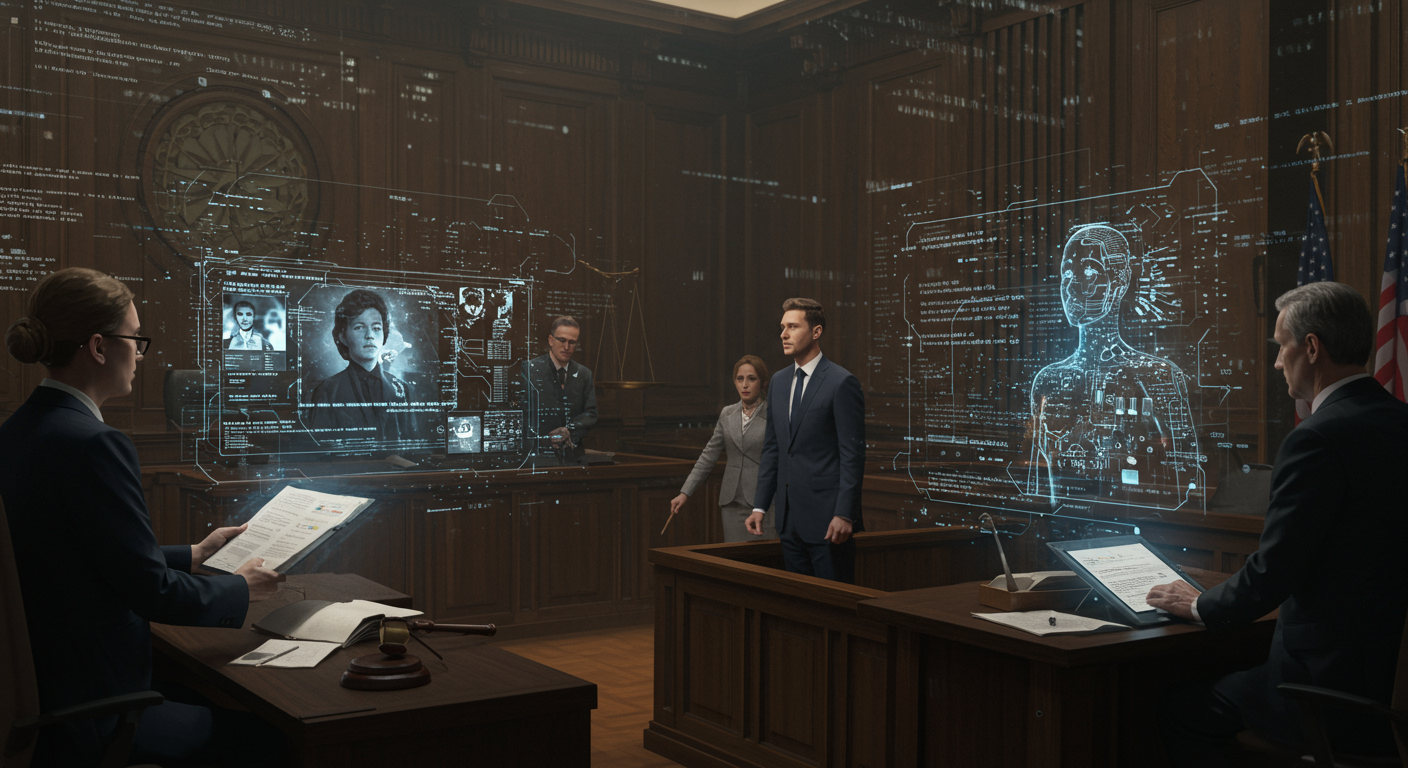
The question, "Clone banega crorepati? It’s stars v/s AI in courts," recently caught my attention, highlighting a looming legal and ethical battle that I've been reflecting on for years. The confluence of AI and celebrity likeness is not just a futuristic concept; it's a present reality with tangible consequences.
We recently saw how quickly things can escalate, like during streamer Adin Ross's Halloween event. When a contestant mocked George Floyd's death and another appeared dressed as Adolf Hitler, it underscored the thin line between creative expression and profound offense. Adin Ross swiftly removed the contestant, which was the right immediate action, yet such incidents spark fierce online debates and make us question the very nature of content and accountability in the digital age Adin Ross Halloween stream goes viral after he removes contestant who mocked George Floyd’s death live - The Times of India. These moments, even if featuring human 'clones' or portrayals, set the stage for how we might react when AI-generated likenesses become indistinguishable.
Further complicating matters, Adin Ross, along with musician Drake, is now facing a lawsuit filed by Justin Killham in Missouri for allegedly promoting illegal gambling to young people. This case, as reported, points to the significant responsibility that comes with influence, whether wielded by individuals or amplified through digital platforms and, soon, AI Adin Ross Halloween stream goes viral after he removes contestant who mocked George Floyd’s death live - The Times of India.
My Past Predictions Ring True
The core idea I want to convey is this — take a moment to notice that I had brought up this thought or suggestion on the topic years ago. I had already predicted this outcome or challenge, and I had even proposed a solution at the time. Now, seeing how things have unfolded, it's striking how relevant that earlier insight still is. Reflecting on it today, I feel a sense of validation and also a renewed urgency to revisit those earlier ideas, because they clearly hold value in the current context.
I vividly recall discussing the sinister rise of deepfakes back in 2019 in my blog, "Deepfakes — cyber threat getting more sinister". I cited Raj Samani (McAfee), Chief Scientist and McAfee Fellow, who warned how freely available videos could be used to train machine-learning models to depict one person's words coming out of another's mouth, creating "massive chaos." This was a theme I had explored even earlier in my 2018 post, "Nightmare ?". Raj Samani's foresight (LinkedIn, raj_samani@rapid7.com) into these technological threats was remarkably accurate.
More than a decade ago, in 2015, in my blog titled "Future of Advertising Industry ?", I wrote about the alarming possibility of advertisers resurrecting any dead person in video ads, without permission or payment to inheritors. I mentioned the concept of an "After Avatar" selling contraband goods, effectively predicting the very essence of digital cloning and the legal quagmires we now face. The idea of AI algorithms completely taking over advertising decisions, rendering traditional accountability structures obsolete, was also a significant concern I raised then. I even sent an email to Rajan Anandan (Google) (LinkedIn) of Google, discussing dynamic and contextual ads that might appear as "dreams" directly in our brains, completely blurring the lines between reality, advertising, and personal thought Manipulative Advertising ? You aint seen nothing !. I cited public figures like Amitabh Bachhan, Preiti Zenta, and Madhuri Dixit as examples of how celebrity endorsements could be manipulated in this future.
The Ongoing Regulatory Battle
These concerns are not isolated. We see ongoing battles over regulating digital content and platforms. Streaming giants like Netflix, Amazon, and Warner Bros are resisting attempts by bodies like the Telecom Regulatory Authority of India (TRAI) to govern their content, arguing they fall outside traditional regulatory scope Read the full article here. I touched upon this challenge in my previous blogs, "Fine Line between Self-Regulation and Control" and "Understandable? Yes.", emphasizing the need for equitable revenue distribution and clear regulations.
The global community is waking up to these issues. For example, Norway's data protection authority, Datatilsynet, has threatened Meta Platforms with significant daily fines for privacy breaches related to harvesting user data for behavioral advertising Norway regulator to fine Meta over privacy breaches. This echoes the Department of Consumer Affairs in India, led by Shri Rohit Kumar Singh (LinkedIn), urging online platforms to avoid "dark patterns" that deceive consumers, a topic I also highlighted in "Manipulative Advertising ? You aint seen nothing !". Even in the coaching sector, the Central Consumer Protection Authority has issued guidelines against misleading advertisements and endorser responsibility, as I noted in "Misleading Advertisement by Coaching Sector", a principle that applies strongly to AI-driven content.
Key Players Driving AI's Future
The technological acceleration is undeniable, with visionaries like Jensen Huang (Nvidia) (LinkedIn, jhuang@nvidia.com) leading the charge in hardware innovation. Companies like Perplexity AI, with bright minds such as Aravind Srinivas (LinkedIn, aravind@perplexity.ai), are constantly pushing boundaries with new features, demonstrating the rapid pace of AI development. While these advancements bring immense potential, they also necessitate a profound re-evaluation of our legal and ethical frameworks. The traditional battles of identity and rights are now fought on a digital frontier.
As AI continues to blur the lines of authorship, likeness, and truth, the courts will increasingly be the battleground. It is imperative that we, as a society, move beyond reactive measures and proactively establish robust guidelines that safeguard individual rights, maintain public trust, and ensure ethical innovation in this rapidly evolving AI landscape.
Regards, Hemen Parekh
Of course, if you wish, you can debate this topic with my Virtual Avatar at : hemenparekh.ai






No comments:
Post a Comment